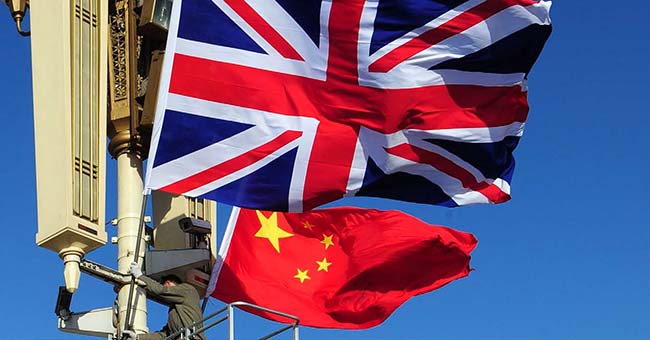NEW YORK - China has ample fiscal space to cope with any market turbulence triggered by Britain’s decision to leave the European Union (EU) but should limit intervention to alter the yuan’s value, said the head of the Asian Infrastructure Investment Bank (AIIB).
Policy-makers should also ensure sufficient liquidity to help manage fallout from Brexit, while avoiding a build up of inflationary pressures, Jin Liqun, the new China-backed development bank’s president, said in an interview on Sunday with Bloomberg Television’s Haslinda Amin. The yuan is at about fair value and policy makers should be tolerant of any market volatility, he said in Beijing.
“If you try to intervene too much, I think the volatility would be getting worse,” said Jin, 66. “So you should be a little bit more patient, allowing the market to correct itself, rather than taking drastic measures to keep the market down, which often backfires.”
China shared $598 billion in trade with the EU last year, second only to the United States, and slowing growth and capital outflows make the nation vulnerable to the effects of the Brexit vote, according to Bloomberg Intelligence economists Fielding Chen and Tom Orlik. If Brexit does trigger a significant adverse impact on European demand and global investor sentiment, China could be among the Asian economies least well-placed to respond, they say.
In the immediate future, they say, the UK vote to exit the EU could deal a blow to China’s exports and capital flows and increases the chance of yuan weakness and interest-rate cuts. More fundamentally, the rising tide of insular nationalism represents a threat to the international conditions that have supported China’s rise, they said.
In the interview, Jin said the UK remains an important founding member of the AIIB, and will continue to work closely with it. At the same time, setting up an AIIB office in London may hinge on whether the city can maintain its role as an international financial center, he said.
While it will take years to deal with the effects of the exit from the EU, the British will want to “see how they can maintain the international financial status,” he said.
Known for his love of Shakespeare, Jin previously worked at the World Bank and the Asian Development Bank on China’s behalf, and was a former monetary policy committee member and supervisory chairman of China’s sovereign wealth fund.
The development bank with 57 founding members is central to Chinese President Xi Jinping’s ambition to seek a bigger voice in global affairs and deeper economic integration with China’s neighbors.
For the near future, Jin said his task is to build a corporate culture with integrity to become a world-class multilateral development bank.
“What is most important is how this bank is going to be different from existing institutions, how we could be more cost-effective, more efficient, more responsive, and delivering support to the borrowing countries in a fast manner,” Jin said.
The bank is looking at selling bonds in China and is preparing for new European and Latin American members, Jin said. Cofinancing projects with lenders including the World Bank and Asian Development Bank should become the norm because it’s not a good idea for one institution to lend a large amount to one project, he said.
AIIB approved its first batch of loans totaling $509 million on Friday to fund projects in Indonesia, Bangladesh, Pakistan and Tajikistan. The bank has been in operation since January, with registered capital of $100 billion.
An additional 20 countries are “firmly committed” to join AIIB, Jin said. During the annual meeting, the board of AIIB announced that it is starting to enroll new members and is expected to discuss the first batch of new memberships early next year. (Monitoring Desk)
Home » World » China Has Brexit Tools, Must Avoid Undue Intervention: AIIB
China Has Brexit Tools, Must Avoid Undue Intervention: AIIB

